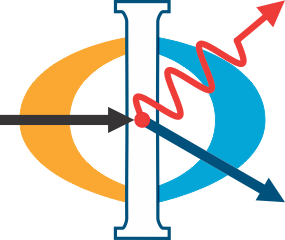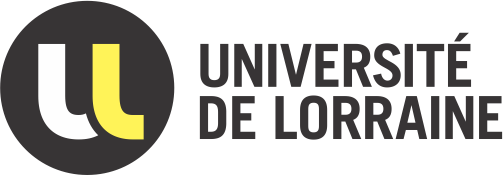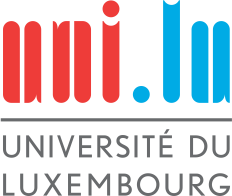Attention — Stop updating in English, look on the French or German side to be up to date. Thank you, Thomas.
General description
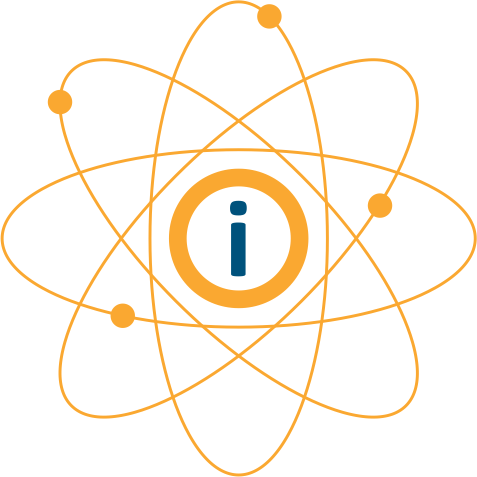
The Saarland University, together with the University of Lorraine and the University of Luxembourg, provide the integrated studies in Physics in both the bachelor's and master's programme. During the studies, the student spend time in each of the three universities and countries. The study contents are organised and arranged to match each other, ensuring that the students finish their degrees at the normal time.
Target group
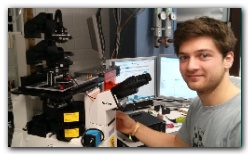
The courses are aimed at young and motivated students who are not only interested in Physics, but also a cultural exchange between the neighbouring European countries. Mastery in the languages is not a prerequisite to admission as the language skills are improved during the studies by both lectures and supplementary language courses. On the other hand, a certain degree of flexibility in terms of time is required for the yearly moving of location, which is accompanied by administrative formalities and bureaucracies. However, help is readily available from the responsible person at the respective universities.
Others

The students of the integrated programme form a close contact circle not only among themselves, but also with the responsible persons of the studies.
Quality assurance
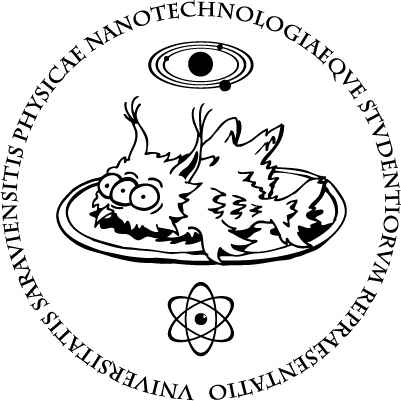
The programme is accredited by the national committees in France and Luxembourg, and is evaluated by the students every semester in Germany. The Saar-Lor-Lux programme is evaluated by the Franco-German University, of which serves as a recognition for the successful integration of the collaborated universities and the supervision of students.
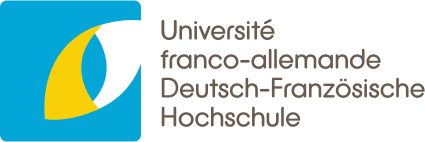
This programme is supported by the Franco-German University.
Description of the bachelor's programme
The Saar-Lor-Lux bachelor's programme (SLLS-B) begins its first year at the University of Lorraine in Nancy for all students. In the first year, students learn the basic knowledge of Physics, which consists of Classical Mechanics, Electrodynamics and Thermodynamics. Courses in Mathematics and complementary theoretical studies provide the necessary mathematical background and foundation. Exercise classes (TD) and practicals (TP) provide better understandings through application and practice. Chemistry is studied as a subsidiary subject, which also has both the lecture and exercise class. The second year takes places at the University of Luxembourg and the studies build on the foundation of that of the first year in Nancy. Students are also introduced to Physics of the 20th century in the context of both experimental and theoretical Physics.
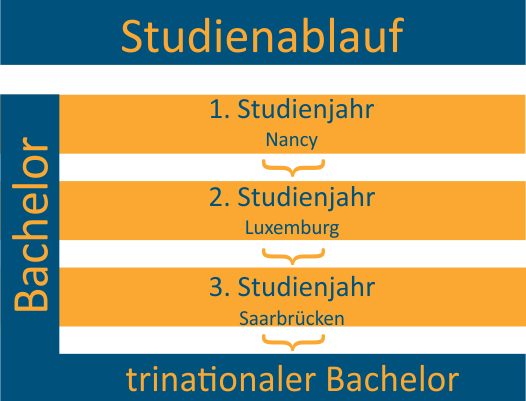
In the third and also the last year of the bachelor programme, students will complete their studies at the University of Saarland in Saarbrücken. Here, the students attend courses in Theoretical Physics (Statistical Physics) and Experimental Physics (Solid State Physics and Nuclear and Particle Physics). As part of the Experimental Physics course, students will also complete the Advanced Laboratory course (FoPra) in groups of two, as well as the individual 10-week long bachelor thesis project, along with a presentation seminar. After completing all the necessary examinations and having obtained 180 ECTS points, the students will be awarded "der Bacheor Physik" degree from the University of Saarland, "Bachelor en sciences et ingénieurie: spécialisation physique" from the University of Luxembourg and "Licence en physique et chimie de la matière de la terre: spécialisation physique" from the University of Lorraine, under the joint bachelor's degree from all three universities. Language courses are provided throughout the entire studies to improve students' language skills.
See Document page for more information.
Description of the master's programme
The Saar-Lor-Lux master's programme (SLLS-M) is much more flexible than the SLLS-B.
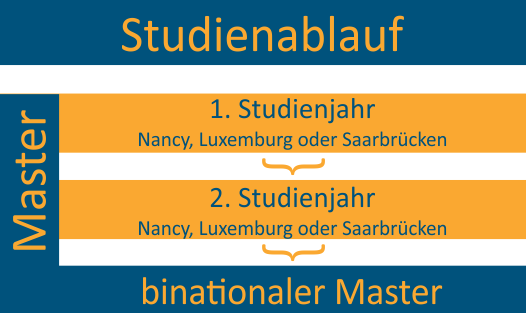
The students are free to choose one of the three partner universities as their first-year university, and one of the two remaining for the second. The second-year university is also where the students will complete their master thesis. However, only the programme between Saarbrücken and Nancy is reimbursed by the DFH.
See Document page for more information.
 .
.